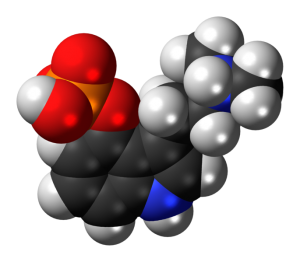Battles over what to do with Oregon's drug decriminalization continue, an Arizona bill ostensibly aimed at homelessness would heighten penalties for some drug crimes and create a new offense, and more.

New Mexico Psilocybin Therapy and Research Resolution Advances. A bipartisan resolution -- SM 12 -- calling on state officials to research the therapeutic potential of psilocybin and explore the creation of a regulatory framework to provide access to the psychedelic has passed out of the Senate Health and Public Affairs Committee on a unanimous vote.
The "memorial" resolution from Senate Minority Whip Craig Brandt (R) and Sen. Jeff Steinborn (D) is not binding but represents a formal request that the state Department of Health "study the efficacy of using psilocybin mushrooms for therapeutic treatments and the establishment of a program for psilocybin mushrooms to be used for therapeutic medical treatments."
The resolution notes that the Food and Drug Administration (FDA) has designated psilocybin as a "breakthrough therapy" and says that the Department of Health should start thinking about a "necessary statutory or regulatory framework for developing" a state-level psilocybin program.
"This can help people very potentially, and so what we're trying to do in a bipartisan way is ask the Department of Health to recognize that we want them to get going to start looking at this," Steinborn said during debate.
The resolution now heads for a Senate floor vote. Last year, similar legislation won a House committee vote, only to die after that.
Drug Policy
Arizona Bill Would Tackle Homelessness by Increasing Some Drug Sales Penalties. Rep. Matt Gress (R-Phoenix) has filed legislation, House Bill 2782, that seeks to address homelessness but does so in part by cracking down on drug sales within declared "drug-free service zones" and by punishing any facility that allows drug use on its premises.
The "drug-free service zones" would surround any location that provides services to the homeless. The bill would heighten sentences for drug sales in the area by adding one year to any sentence and making that year mandatory -- without any chance for probation or deferred adjudication. And it would make it a misdemeanor to tolerate drug use on homeless service premises.
The bill also includes provision for a $75 million permanent fund for homeless shelters and services and modifies funding allocations for homeless service providers contingent upon meeting performance benchmarks.
"This legislation is an important step towards reducing chronic homelessness and drug-related crime, ensuring that Arizona's vulnerable populations are effectively supported while ensuring public safety," Gress said. "Establishing accountability within homeless service zones will help safeguard our communities from drug-related crime and offer a more structured and supportive environment for our homeless population to rebuild their lives."
The bill is before the House Appropriations Committee, but it is not on this week's meeting agenda. The bill would have to be heard in next week's meeting, the last for the committee to consider bills introduced in the House, if it is to advance.
Oregon Bill Would Make Public Drug Use a Misdemeanor. With the Democrats' bill to recriminalize drug use facing an uncertain future, some bipartisan members of the legislature are presenting another option: making public drug use a misdemeanor. Senate Bill 1553 would do just that.
State voters approved drug decriminalization in 2020 as part of Measure 110, which also dedicated marijuana tax revenues to treatment, prevention, and harm reduction services. But decriminalization has sparked a backlash, strengthened in part by high fatal overdose levels and visible public drug use, and lawmakers are now squabbling primarily not over whether to recriminalize drug possession but how to.
The Democrats, who control the legislature, have presented House Bill 4002 as their primary response. It looks to expand access to medications that ease opioid withdrawal, expand drug treatment services, and make it easier to prosecute drug dealers. It also makes drug possession a Class C misdemeanor, punishable by up to 30 days in jail. Many Republicans are arguing that is not tough enough and are demanding that it be a Class A misdemeanor punishable by up to a year in jail.
Meanwhile, the bill to make public drug use a misdemeanor got a hearing in the Senate Judiciary Committee Monday, but no vote was taken.
International
Philippines Medical Marijuana Bill Advances. A joint panel in the House of Representatives has in principle approved a bill to legalize the medicinal use of marijuana, but without removing it from the country's list of dangerous drugs. Meeting together, the Committee on Dangerous Drugs and the Committee on Health agreed to the measure, which consolidates a number of House bills.
The measure would legalize medical marijuana and create a Medical Cannabis Office to oversee the program.
After the joint panel vote, Committee on Dangerous Drugs Chair Rep. Robert Ace Barbers ordered that the committee report be approved and sent to the Rules Committee, which will need to approve it before sending it to the Appropriations Committee, which will then need to approve it before it goes for floor votes.
Under the draft law, an Medical Cannabis Office would be established to act as the "primary regulatory body for medical cannabis under the direct supervision and control of the Department of Health" which would work with the Dangerous Drugs Board and other related agencies for policy and programs coordination.
Medical marijuana could only be accessed through authorized and licensed hospitals, clinics, drugstores and other medical facilities. Only accredited physicians would be authorized to prescribe it to qualified patients, in quantities that would not last for over a year.
This work by StoptheDrugWar.org is licensed under Creative Commons Attribution-ShareAlike 4.0 International
Add new comment